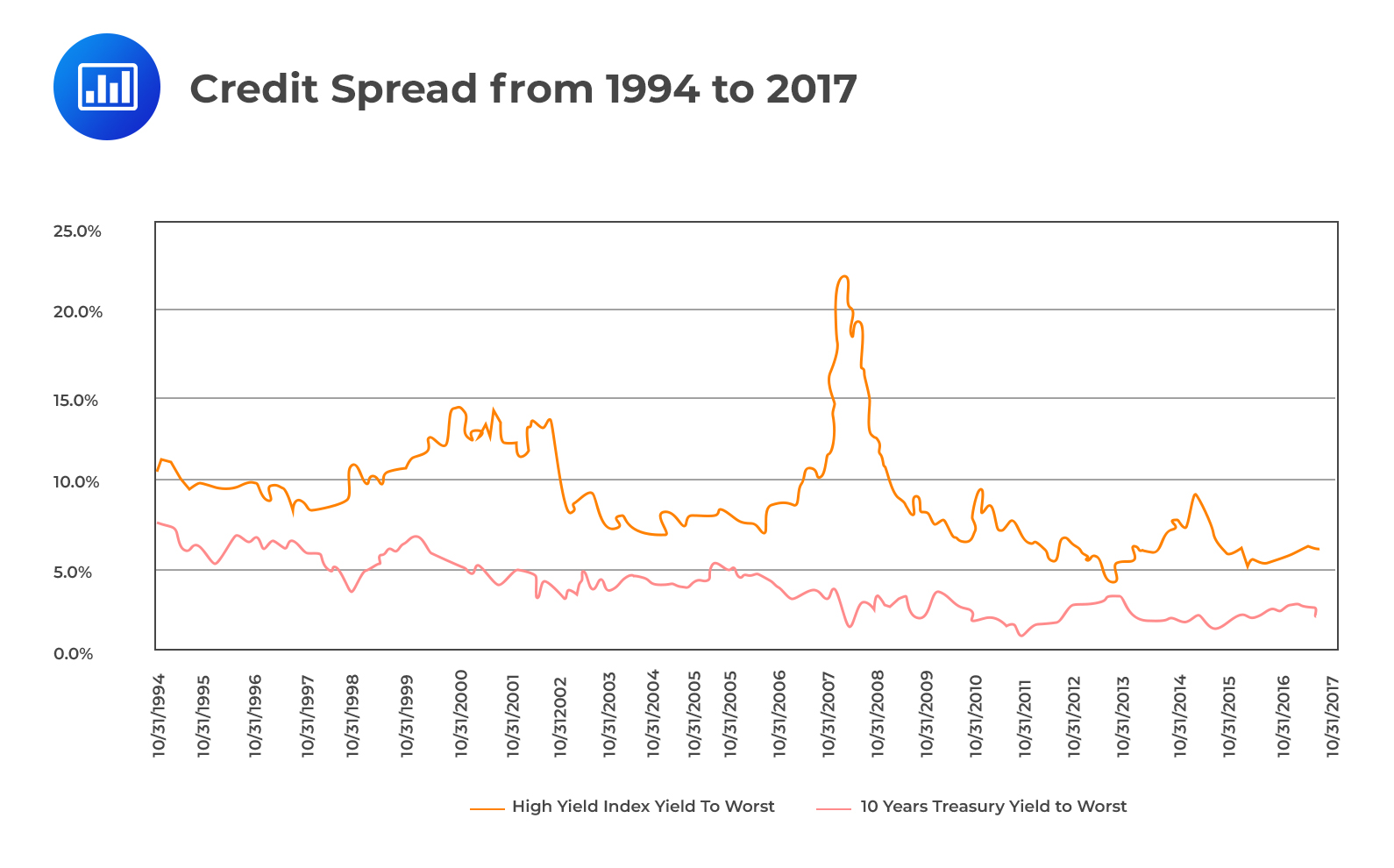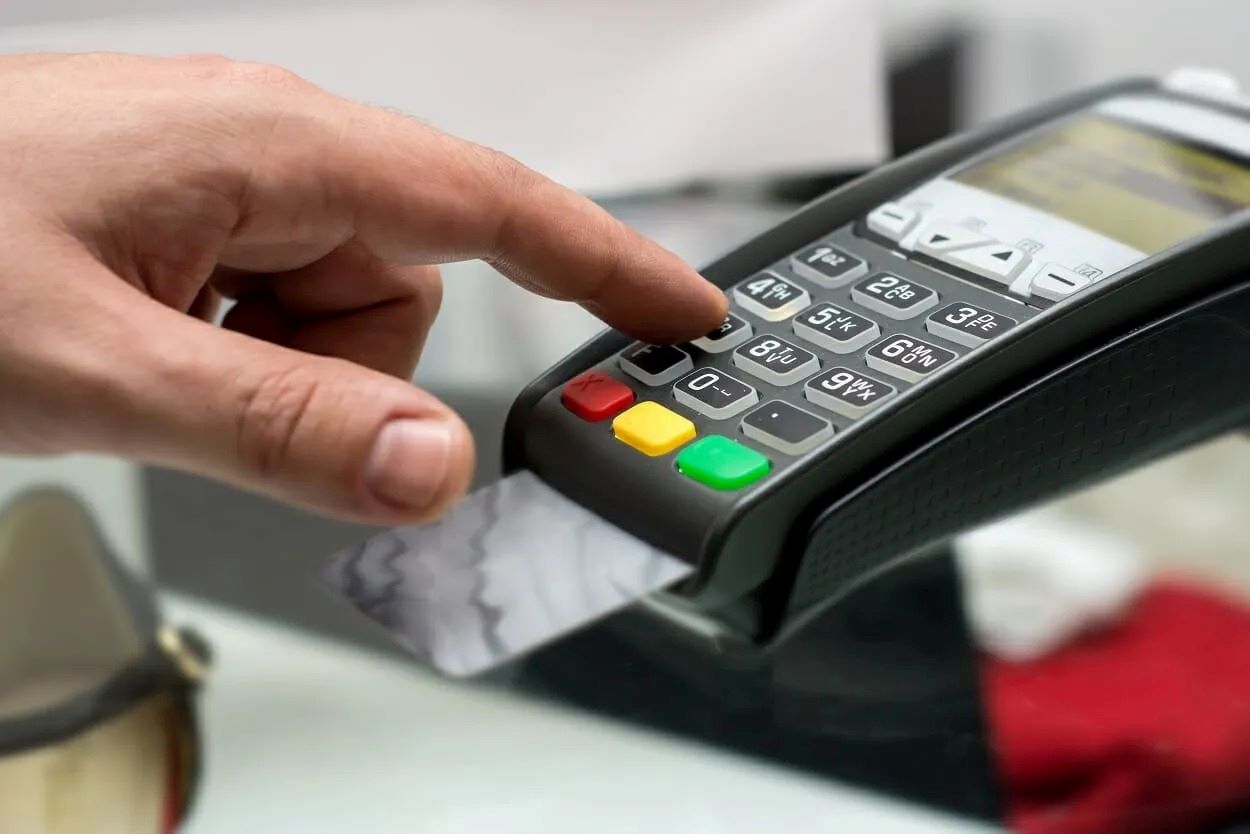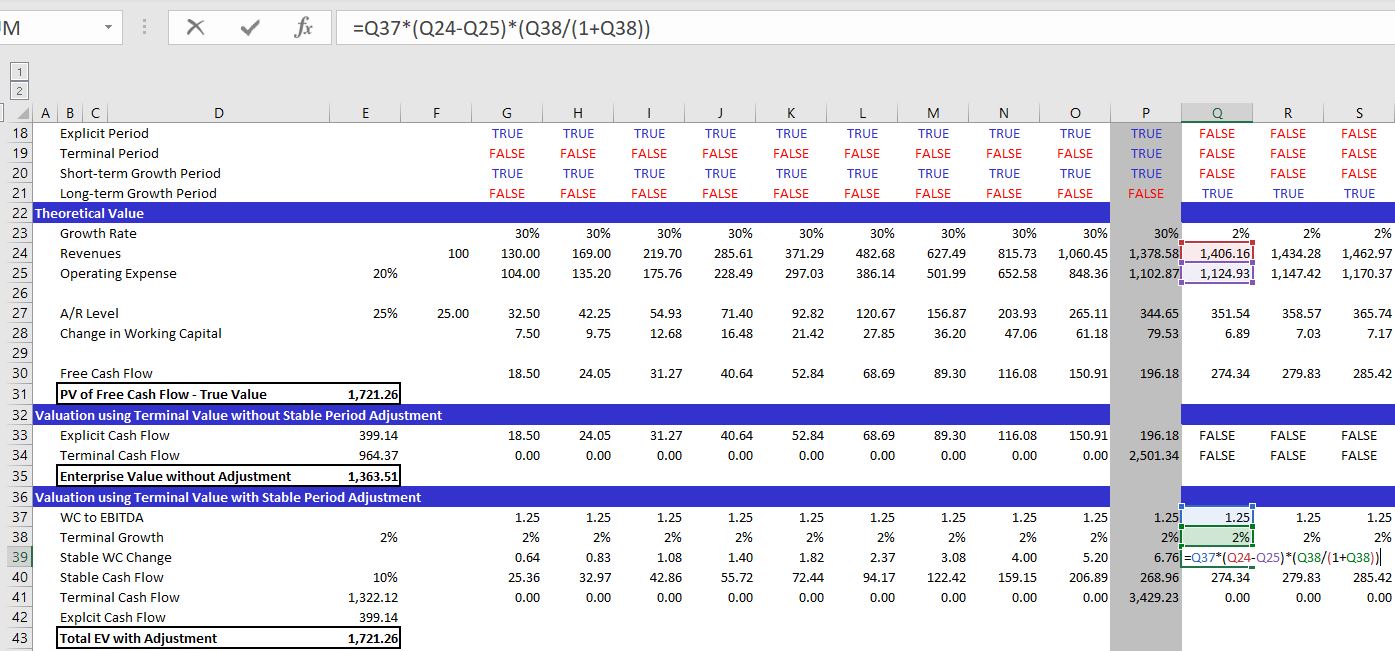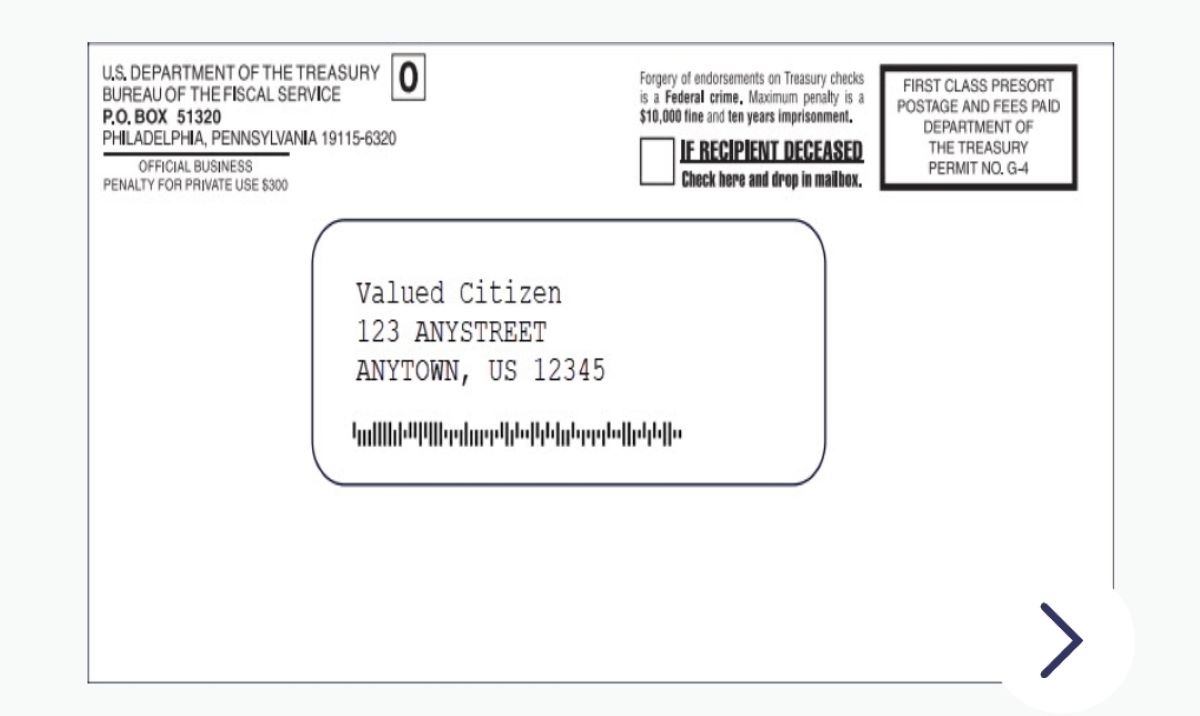

Finance
What Is A Credit Voucher
Published: January 14, 2024
Discover the benefits of credit vouchers and how they can help you manage your finances effectively. Explore the various uses and advantages of finance-focused credit vouchers.
(Many of the links in this article redirect to a specific reviewed product. Your purchase of these products through affiliate links helps to generate commission for LiveWell, at no extra cost. Learn more)
Table of Contents
Introduction
Welcome to the world of credit vouchers! In the realm of finance, credit vouchers play a vital role in transactions, offering a convenient and flexible solution for both businesses and consumers. Whether you have come across a credit voucher before or are new to the concept, this article aims to provide you with a comprehensive understanding of what a credit voucher is and how it can be beneficial in your financial endeavors.
A credit voucher, also known as a gift card or a store credit, is a prepaid card or certificate that represents a certain monetary value. It functions as an alternative form of payment and can be used to purchase goods or services from a specific retailer or a group of participating merchants. Unlike traditional cash or credit cards, credit vouchers are limited to being used within the particular business or brand indicated on the voucher.
The popularity of credit vouchers has surged in recent years, fueled by the convenience and flexibility they offer to both businesses and consumers. Retailers often provide credit vouchers as a marketing strategy to attract new customers, promote their products or services, or as a way to retain customer loyalty. From the consumer’s perspective, credit vouchers provide financial freedom and flexibility, allowing them to choose how and when they want to spend their voucher balance.
Definition of a Credit Voucher
A credit voucher is a form of prepaid payment that can be used to purchase goods or services from a specific retailer or a group of participating merchants. It is essentially a certificate or card that represents a certain monetary value, which can be redeemed within the designated establishment or network.
Credit vouchers are typically issued by businesses as a promotional tool to encourage customer spending or as a gesture of goodwill for customer satisfaction. They can be physical cards, electronic codes, or even virtual accounts that hold a specific amount of credit to be used towards future purchases.
Unlike traditional forms of payment like cash or credit cards, credit vouchers carry a predetermined value, which can range from a specific monetary amount (e.g., $50) to a specific product or service (e.g., a free night’s stay at a hotel). The value of the voucher can be fully or partially redeemed, depending on the individual’s preference and the terms and conditions set by the issuing company.
It’s important to note that credit vouchers are different from gift cards, although the terms are often used interchangeably. While both serve as a prepaid form of payment, gift cards are usually associated with a specific retailer or brand, allowing recipients to choose products or services within that particular establishment. On the other hand, credit vouchers may be accepted by a group of merchants or even multiple retailers, offering more flexibility in terms of where they can be redeemed.
Overall, credit vouchers are designed to provide convenience, flexibility, and an added incentive for consumers to patronize specific businesses. They offer a simple and efficient way to make purchases without the need for physical cash or credit cards, making them a popular choice for both consumers and businesses alike.
Purpose and Uses of Credit Vouchers
Credit vouchers serve a variety of purposes and offer consumers and businesses numerous advantages. Let’s explore some of the main reasons why credit vouchers are widely used and appreciated:
- Marketing and Promotions: Businesses commonly use credit vouchers as part of their marketing strategies to attract new customers, increase brand awareness, and boost sales. By offering vouchers as incentives or rewards for specific actions or purchases, companies can encourage customer loyalty and stimulate repeat business.
- Gifts and Presents: Credit vouchers make excellent gifts for various occasions, providing recipients with the freedom to choose something they truly want or need. They are a popular choice during holidays, birthdays, anniversaries, or as corporate gifts.
- Customer Satisfaction and Retention: Credit vouchers are often issued to address customer concerns or as a gesture of goodwill to enhance customer satisfaction. By offering vouchers in these instances, businesses can turn negative experiences into positive ones, fostering customer loyalty and retention.
- Budget Management: Credit vouchers allow individuals to effectively manage their expenses and budget by preloading a specific amount of money onto the voucher. This can be particularly helpful during holidays or special occasions when expenses tend to increase, as it helps people avoid overspending or going into debt.
- Employee Rewards and Incentives: Many companies use credit vouchers as incentives or rewards for their employees, acknowledging their hard work or achieving specific goals. This not only boosts employee morale but also allows them to choose rewards that are meaningful to them.
In terms of uses, credit vouchers can be utilized in various ways:
- Retail Purchases: The most common use of credit vouchers is to make purchases at retail stores, either in-person or online. The voucher value is deducted from the total amount due, allowing individuals to pay partially or in full with the voucher.
- Online Transactions: With the rise of e-commerce, credit vouchers can be used to shop online, providing a secure and convenient payment method. Users simply enter their voucher information during the checkout process, and the value is applied to the transaction.
- Service Redemptions: Credit vouchers can also be used to redeem specific services, such as spa treatments, hotel stays, or dining experiences. The voucher value covers the cost of the service, eliminating the need for additional payment.
- Membership Benefits: Some credit vouchers come with additional perks or exclusive offers, providing users with membership benefits or discounts at affiliated partners or locations.
Overall, credit vouchers offer a versatile and practical solution for both consumers and businesses, allowing for effective marketing, enhanced customer satisfaction, and convenient payment options.
Types of Credit Vouchers
Credit vouchers come in various forms and can be categorized based on their features, redemption options, or the industries they cater to. Let’s explore some of the common types of credit vouchers:
- Retail Store Vouchers: These are the most familiar type of credit vouchers and are specific to a particular retail store or brand. They can be used to make purchases within the designated store or brand, allowing customers to enjoy discounts, promotions, or special offers associated with that retailer.
- Restaurant and Dining Vouchers: These vouchers are specifically tailored for the food and beverage industry. They can be used at participating restaurants, cafes, or bars to cover the cost of meals, drinks, or even special dining experiences.
- Travel and Accommodation Vouchers: These vouchers are popular in the travel and hospitality sector. They can be used to book flights, hotels, or vacation packages, enabling travelers to enjoy discounted rates or exclusive perks.
- Entertainment Vouchers: These vouchers offer access to various entertainment options, such as movie theaters, theme parks, concerts, or sports events. They provide discounted admission or special privileges for specific entertainment experiences.
- Online Shopping Vouchers: With the growth of e-commerce, online shopping vouchers have become increasingly prevalent. These vouchers can be used on e-commerce platforms or specific websites to purchase a wide range of products, from clothes and accessories to electronics and home goods.
- Service Vouchers: Service vouchers are geared towards specific services such as spa treatments, salon services, fitness classes, or car washes. They allow individuals to enjoy discounted rates or redeem services they desire.
- Multi-brand Vouchers: Multi-brand vouchers, also known as multi-store vouchers or open-loop vouchers, offer more flexibility as they can be redeemed across multiple retailers or participating businesses. They are not restricted to a single brand, providing users with the freedom to choose from various options.
Keep in mind that the availability of specific types of credit vouchers may vary by region and industry. Businesses often tailor their voucher offerings to cater to the needs and preferences of their target audience, ensuring a wide range of options and benefits for their customers.
No matter the type, credit vouchers provide a convenient and versatile way to make purchases or enjoy services, making them a valuable tool in today’s consumer-driven market.
How Credit Vouchers Work
Credit vouchers operate on a simple and straightforward mechanism that allows individuals to make purchases or redeem services. The specific steps may vary depending on the voucher issuer and industry, but the general process remains consistent. Here’s a breakdown of how credit vouchers typically work:
- Acquiring the Voucher: Individuals can obtain credit vouchers through various channels, such as purchasing them directly from the issuing business or receiving them as gifts or rewards. Vouchers may be physical cards, electronic codes delivered via email or text message, or virtual accounts accessed through online platforms.
- Understanding the Terms: Each credit voucher comes with its own set of terms and conditions, which should be carefully reviewed. These terms outline important details such as the voucher’s expiration date, any usage restrictions, participating merchants (if applicable), and how the voucher value can be redeemed.
- Redeeming the Voucher: When making a purchase or redeeming a service, individuals present the credit voucher to the cashier or service provider. In the case of physical cards or codes, they are typically scanned or entered into the system to deduct the voucher value from the total amount due.
- Partial Redeemability: Credit vouchers often allow for partial redemption, meaning the voucher value can be used for multiple transactions until the full value is exhausted or until the voucher’s expiration date. Some businesses may issue new vouchers for any remaining balance if only a portion of the voucher value was used.
- Checking the Balance: It’s advisable to keep track of the remaining balance on the credit voucher, especially for multi-use vouchers. Many businesses provide online portals or customer service hotlines where users can check the current voucher balance or transaction history.
- Expiration and Exclusions: Credit vouchers typically have an expiration date, after which their value becomes void. Additionally, certain products, services, or promotions may be excluded from voucher redemption, so it’s important to review the terms and inquire with the business if there are any uncertainties.
Overall, credit vouchers provide a convenient and flexible way for individuals to make purchases or enjoy services. They simplify the payment process, improve budget management, and offer added value through discounts, promotions, or exclusive experiences. By understanding how credit vouchers work and adhering to their terms, individuals can fully utilize the benefits they provide.
Advantages of Using Credit Vouchers
Credit vouchers offer numerous advantages for both consumers and businesses. Let’s take a closer look at some of the key benefits of using credit vouchers:
- Flexibility and Convenience: Credit vouchers provide individuals with the flexibility to choose how and when they want to spend their voucher balance. They can be used towards a wide range of products or services, whether it’s shopping at a favorite store, dining out at a restaurant, or booking a vacation.
- Budget Management: Credit vouchers are a valuable tool for managing personal or household budgets. By preloading a specific amount onto the voucher, individuals can have a clear spending limit and avoid overspending. This is particularly useful during certain occasions when expenses can be high, such as the holiday season or special events.
- Incentives and Rewards: Many businesses offer credit vouchers as incentives or rewards for various actions, such as making a purchase, referring a friend, or participating in a loyalty program. These vouchers provide added value to customers and encourage continued patronage of the business.
- Gifting Options: Credit vouchers make fantastic gifts and presents for family, friends, or colleagues. They allow recipients to choose something they truly desire or need, ensuring a meaningful and personalized gift. Additionally, they eliminate the stress of finding the perfect gift, as the recipient can decide how to utilize the voucher.
- Customer Loyalty: Credit vouchers are an effective tool for fostering customer loyalty and engagement. By providing vouchers to loyal customers, businesses can show appreciation for their continued support, encouraging them to return and make further purchases. This can also lead to positive word-of-mouth recommendations and the acquisition of new customers.
- Marketing Opportunities: Credit vouchers provide businesses with a powerful marketing tool. They can be used to attract new customers, promote specific products or services, or encourage customers to visit during slow business periods. By offering credit vouchers as part of marketing campaigns, businesses can generate buzz and increase brand visibility.
Overall, credit vouchers offer flexibility, convenience, and added value for both consumers and businesses. They can contribute to improved financial management, customer loyalty, and effective marketing strategies. With these advantages, it’s no wonder credit vouchers have become a popular form of payment and gifting in today’s market.
Disadvantages and Limitations of Credit Vouchers
While credit vouchers offer many benefits, it is important to consider their potential disadvantages and limitations. Here are some factors to keep in mind:
- Restrictions on Use: Credit vouchers are typically limited to a specific retailer or a group of participating merchants. This means that the voucher may not be applicable in all establishments or for all products or services, which can restrict the recipient’s choices.
- Expiration Dates: Credit vouchers often come with an expiration date. If the voucher is not used within the designated timeframe, the value becomes void, resulting in a loss for the voucher holder. It is essential to be aware of the expiration date to ensure the voucher is used before it expires.
- Unused Balances: Sometimes, individuals may not fully utilize the value of the credit voucher in a single transaction. This could result in an unused balance remaining on the voucher, which may be challenging to redeem or may go unused due to forgetfulness or difficulty tracking the remaining amount.
- Limited Transferability: Credit vouchers are typically non-transferable, meaning they cannot be gifted, resold, or transferred to another individual. This may limit the recipient’s ability to share or pass on the voucher to someone else.
- Restrictions on Discounts and Promotions: Some businesses may have restrictions on using credit vouchers in conjunction with other discounts, promotions, or special offers. This means that individuals may have to forgo additional savings or benefits when redeeming their voucher.
- Incompatibility with Online Purchases: Certain credit vouchers may not be compatible with online purchases, especially if they are physical cards or do not have an associated online redemption process. This can limit the convenience and flexibility of using the voucher for online transactions.
- Potential for Loss or Theft: With physical credit vouchers, there is always a risk of loss or theft. If a physical voucher is misplaced or stolen, the bearer may lose the value associated with the voucher unless the issuer has specific policies to mitigate such risks.
It is crucial for individuals to review the terms and conditions associated with credit vouchers to fully understand any restrictions or limitations. By being aware of these potential downsides, users can make informed decisions and maximize the benefits of their credit vouchers.
Tips for Using Credit Vouchers Effectively
To make the most of your credit vouchers and fully enjoy their benefits, consider the following tips:
- Review the Terms and Conditions: Take the time to carefully read and understand the terms and conditions of the credit voucher. Pay attention to the expiration date, redemption restrictions, and any additional guidelines provided by the issuer.
- Plan Your Purchases: Before using the voucher, consider what you really need or want to purchase. Make a list and prioritize your purchases to ensure you make the most of the voucher’s value.
- Track the Remaining Balance: Keep track of the remaining balance on your credit voucher. Many businesses provide online portals or customer service hotlines where you can check your current balance. This helps you know how much value is left and plan future purchases accordingly.
- Combine with Other Discounts or Promotions: If allowed by the terms and conditions, consider combining your credit voucher with other discounts or promotions to maximize savings. This can help you get the most value out of your voucher and potentially enjoy additional benefits.
- Consider Partial Redemption: If you do not plan on using the full value of the voucher in one transaction, consider partially redeeming it and retaining the remaining balance. This allows you to make use of the voucher over multiple visits or purchases.
- Use Online Redemption Options: If the credit voucher offers online redemption, take advantage of this feature. Online redemption provides convenience and flexibility, allowing you to make purchases from the comfort of your own home.
- Share or Regift: If permitted, consider sharing or regifting your credit voucher if you are unable to use it yourself. This allows someone else to benefit from the voucher and prevents the value from going to waste.
- Stay Organized: Keep your credit vouchers organized and easily accessible. This will help you remember to use them before they expire and prevent them from getting lost or misplaced.
- Provide Feedback: If you had a positive experience using a credit voucher, consider providing feedback to the issuing business. This can help them improve their voucher program and incentivize them to continue offering such benefits to customers like yourself.
By following these tips, you can ensure that you effectively utilize your credit vouchers and make the most of the value they provide. Enjoy the convenience, flexibility, and savings that come with using credit vouchers in your financial endeavors!
Conclusion
Credit vouchers have become an integral part of our financial landscape, offering a convenient and flexible solution for both businesses and consumers. These prepaid payment instruments provide a multitude of benefits, including flexibility, budget management, and customer loyalty incentives. By understanding how credit vouchers work and utilizing them effectively, individuals can enhance their financial experiences and make the most of their purchasing power.
Throughout this article, we have explored the definition of credit vouchers, their purpose, and various types. We have also discussed their advantages, such as convenience, marketing opportunities, and the ability to cater to individual preferences. Additionally, we have highlighted some of the limitations and potential drawbacks, such as restrictions on use and expiration dates, that individuals should be mindful of when using credit vouchers.
To use credit vouchers effectively, it is crucial to review the terms and conditions, plan purchases strategically, track remaining balances, and consider combining vouchers with other discounts. Online redemption options can provide added convenience, while sharing or regifting vouchers can help prevent unused balances.
In conclusion, credit vouchers have revolutionized how we make purchases and provide monetary value. They offer convenience, flexibility, and help manage budgets. Whether you receive credit vouchers as gifts, incentives, or rewards, understanding how to utilize them effectively can bring a multitude of benefits. So next time you come across a credit voucher, you’ll be well-equipped with the knowledge and insight to maximize its value and enjoy the perks it offers.














